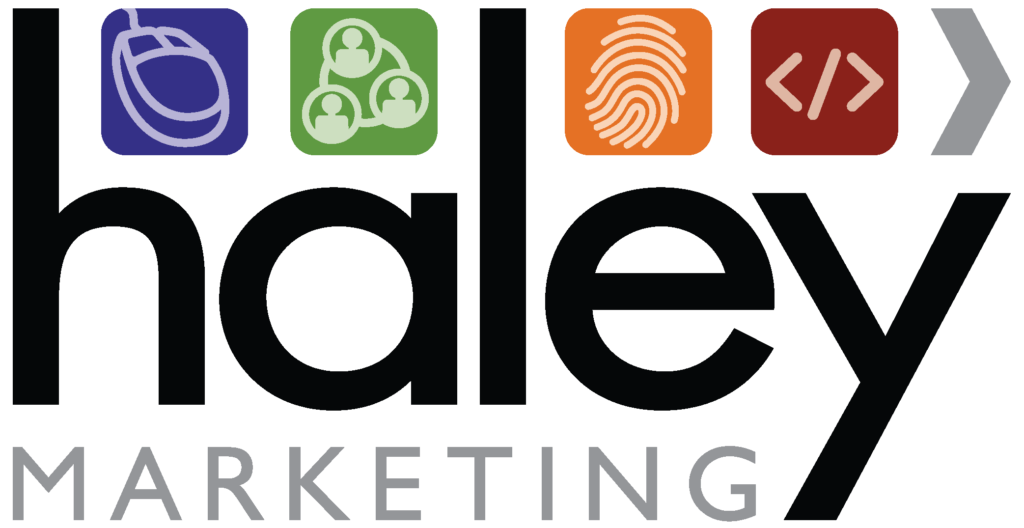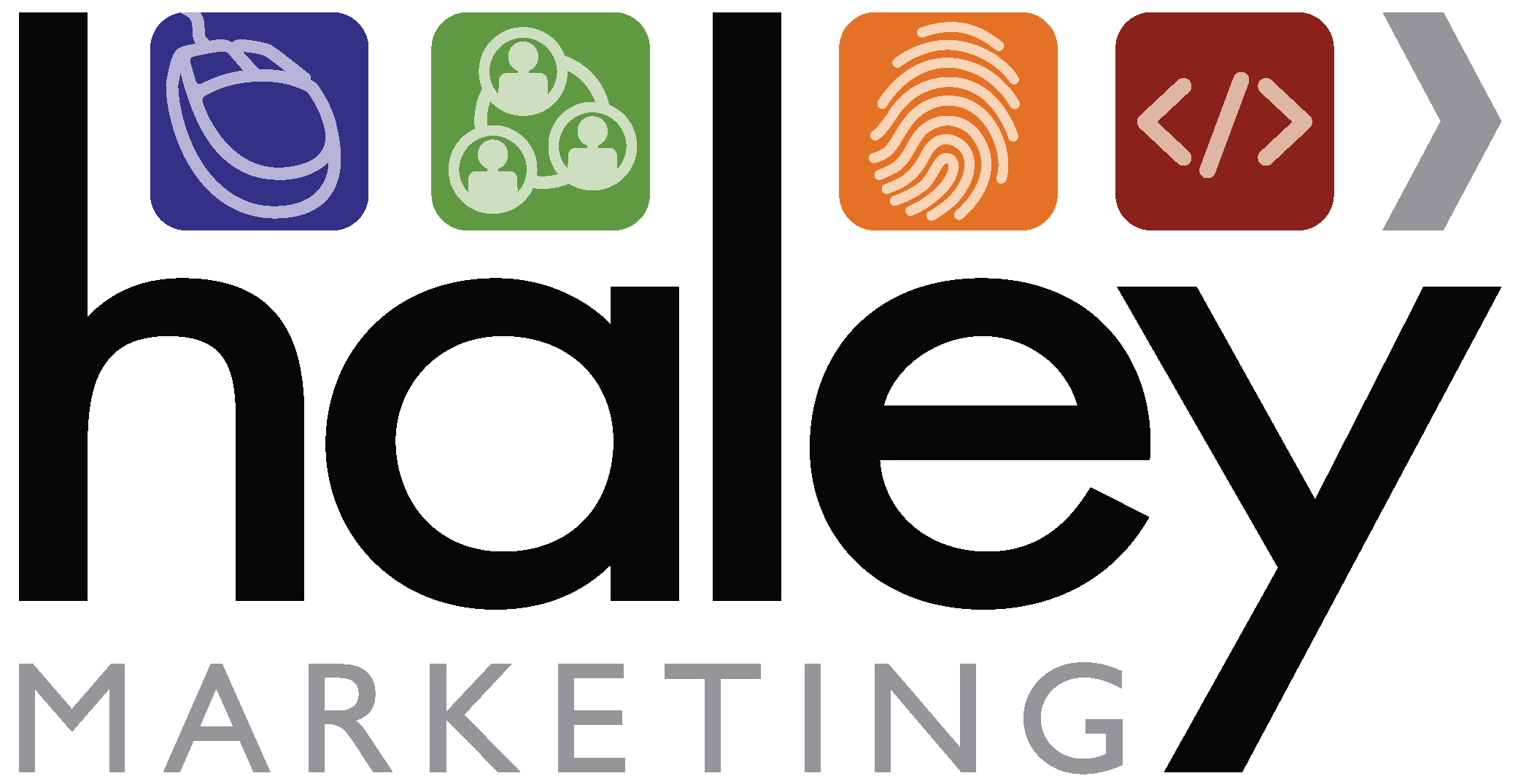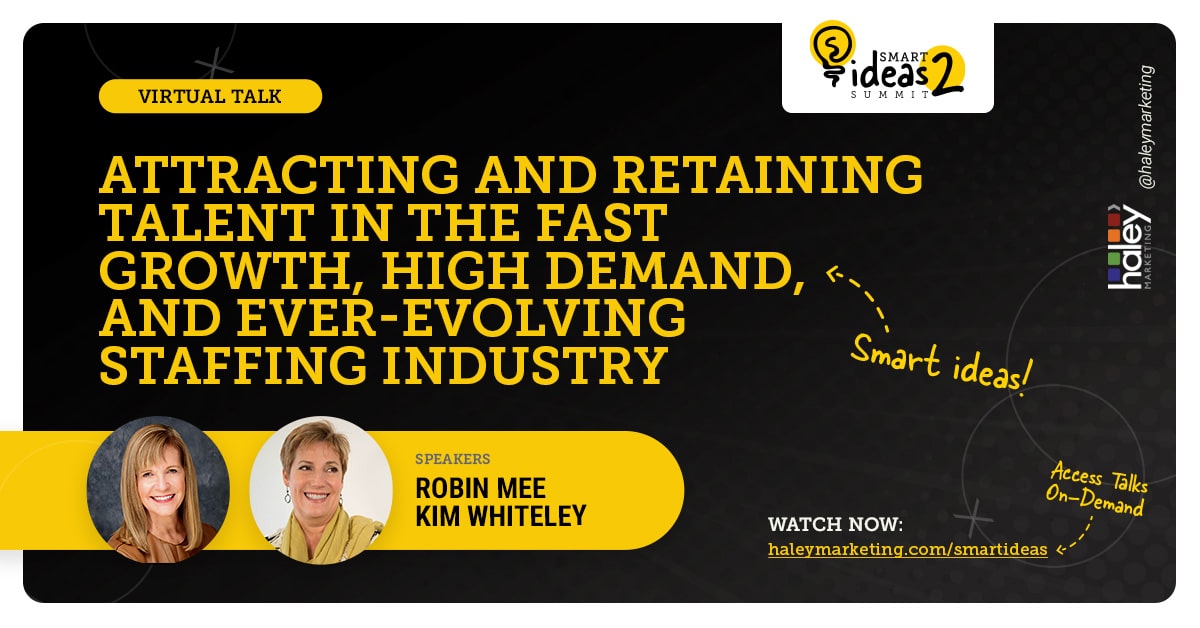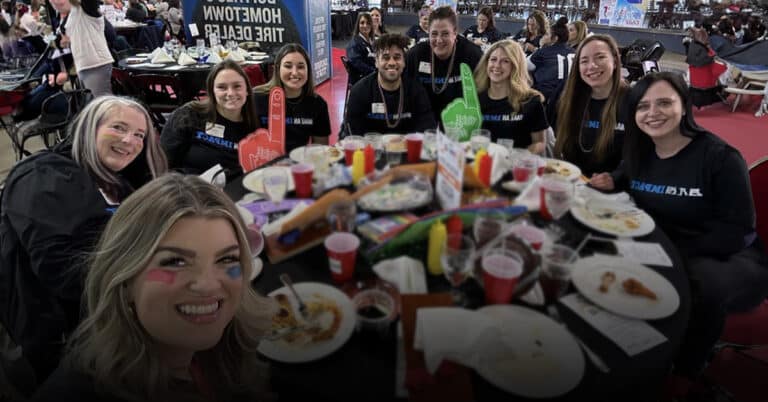The SMART IDEAS Summit 2 was a huge success – thank you to everyone who attended!
If you missed a session or want to rewatch or share any of the presentations, we have great news:
The SMART IDEAS Summit 2 Content Is Available on Demand!
Access the free recordings and slides for 14 educational presentations from some of the smartest minds in staffing here. Simply enter your contact information to access the recordings, and then click on any session to start viewing!
Session Recap: Attracting and Retaining Talent in the Fast Growth, High Demand, and Ever-Evolving Staffing Industry
In this presentation, Robin Mee and Kim Whiteley of MeeDerby discuss strategies and actionable tactics to attract and retain talent in a challenging market. Robin and Kim talk about topics candidates care about like culture, flexibility, advancement opportunity and compensation to compete for in-demand talent.
Video Transcript
Robin Mee:
I’m assuming everybody can see me and hear me?
David Searns: Thumbs up.
Robin Mee:
Thank you. for the next thirty minutes Kim Whiteley and I are going to talk about hiring talent in this incredibly competitive high-growth staffing market. David, I want to thank you and Haley Marketing for including us today, and my gosh, it’s been so good to see our friends and colleagues here in the staffing community.
Kim Whiteley:
We know that it’s an intensely competitive market, and we know this based on the fact that we interview thousands of staffing industry candidates on an annual basis, as well as work with hundreds of staffing firms to help them with their hiring needs.
Robin Mee:
No slides today; just talk. We’re going to have a conversation. It’s what we do every day, all day. You guys, these are times like we have never seen before. The hiring demand is off the charts. That’s no surprise. When asked if we were in a recession, I said, “We may be, but we’re not seeing the impact at MeeDerby.” What happens in the staffing industry happens at MeeDerby, and we are seeing unprecedented demand.
Flexibility is Essential to Attracting and Retaining Talent
We’ve been doing this for 33 years. At the end of every year, we get the list for 2023 coming up. This is Kim’s and Robin’s top seventeen. I’m going to start. It won’t be surprising that remote work is the number one issue on the minds of talent today. It is remote. It is hybrid. Obviously, the third part is back in the office, and we’re all reading a lot in the media now But from the experience that we have from interviewing thousands of people on an annual basis, if you open your work options, you will have a greater pool of talent to choose from. A couple of months ago, my advice to my team was that we don’t want searches with in-office requirements. We just can’t get candidates to say yes. And while we’ve loosened up on that, I recommend finding out why. Ask the question, “Why do people need to be in the office? What parts of the job don’t require being in office?” And look critically at this. It is the number one issue currently.
Kim Whiteley:
In addition to remote and hybrid, think about what schedule flexibility you can offer. Long gone are the days when you had to be tied to your desk from 8:00 AM to 6:00 PM. Really think about schedule flexibility, whether it is giving somebody the ability to do school drop off or pick up or handle volunteer obligations at the school. These are important to many parents. They might be caring for their older parents. I challenge everybody to think about what flexibility they can offer. And again, we hear this from candidates. We had an example just last week where a candidate said to me, “Look, it’s not that I can’t travel. I can travel, but I share custody, so these are the exact days that I can travel every month without fail. And if that’s not going to work, then I don’t even want to go through the interview process.” it’s top of mind for many folks.
Robin Mee:
And this is a retention issue of great magnitude because if you want employees for life, you need to support them in their lives. Okay, next.
Candidates And Employers Want Cultural And Values Alignment
Every conversation at MeeDerby starts with, “what are you looking for?” What’s important to you? And we hear things like, “I want a voice. I want to be heard. I want a cooperative, not a competitive, environment. I want a supportive, empathetic workplace.” People want their identity valued by their employers and by their colleagues. Think about values and cultural alignment.
Kim Whiteley:
They want to elevate their careers. Period. They’re not moving for a lateral job or the same dollars. Think about that when you’re hiring, but as Robin spoke to earlier, from a retention perspective, make sure that what is important individually to each of the people on your team. In some cases, members of your own team might not be interested in moving up the career ladder. Maybe for them, knowing that they have a voice, they have a home, they have a secure position is what they want.
But I think it’s really important to give regular real-time feedback and meet with them one-on-one as often as possible. An annual review is, I don’t want to say out the window, but people want regular feedback, quick feedback. It should never surprise you when somebody says, “Oh, I’m moving on, or I’m leaving.” If you are talking to them weekly or biweekly, you know what’s important to your teams.
Robin Mee:
It’s surprising to me how many companies come to us, and they want somebody who’s doing this exact job in another company, “Oh, and by the way, we’re going to offer them less because they’ve got such a big commission opportunity here.” People will not leave their current position if they do not see the new one as an elevation in their careers. And again, to Kim’s point, you want to ensure that you’re elevating people inside your organization, so they don’t feel the need to leave. And it is very different for each person. We’ll talk about compensation a little bit later. That is not number one, as you can tell.
Create a Collaborative, Supportive and Empathetic Work Environment
Connectivity has never been more important. in this new world of hybrid and remote, and some people working in offices, we need to be creative. Our teams need to be connected using all the tools and technology available. And we’ve talked about snail mail. We’ve talked about emails. We’ve talked about regular meetings. MeeDerby has been remote for 11 years, and we’ve had a weekly meeting on Zoom for as many years. When the pandemic started, we had a little meeting every day. Then we went to three a week, and now we’re down to two. People really need to feel connectivity, and there are so many exciting things that you can do.
Celebrate the wins, celebrate those birthdays, celebrate those anniversaries, and figure out ways for your remote teams to get together. I mean, at MeeDerby, many of us are in the DC Metro area, so we will co-office. We will have annual retreats. We will all meet up at conferences. There are a lot of ways to stay connected. And frankly, I’m sure I talked to our team more, each individual person. There are twelve people on our team, more in our remote environment than a lot of people have in a traditional brick-and-mortar. But please stay connected, make that a priority.
Kim Whiteley:
And I read, I think it was a Wall Street Journal stat that said 73% of people still do consider, even in a hybrid remote, the people that they work with, part of their social and their friend group. it’s important, as Robin said, to help them stay connected and to help keep that stat high because that means they’re going to stay with you for the most part.
Robin Mee:
And we were just talking about the importance of knowing. I think Susan, you said that knowing your clients’ birthdays and kids’ names and where they go to school, well, you need to do that for your employees. And we need to do that with our colleagues. I just this week said to one of the moms on our team, “How was the first day of school?” And I heard that the daughter had a great day, but the son didn’t. This is connectivity. And empathetic leadership.
Transparency Builds Trust
Kim Whiteley:
Open and honest communication across your leadership and across your teams. There should be nothing that anyone in your company can’t say to you or vice versa, and they know they can do it safely. They should know you have respect for what they’ve said, and they can come to you. There will always be confidential issues about your company, but the more transparent you can be with your teams, the better. If anyone thinks we are headed back into a recession or troubling times, make sure you’re being very transparent with your team about how the company will go forward and how you’ll communicate.
Robin Mee:
Humanizing leadership and management also go a long way to creating a collaborative and supportive work environment. We’re going to get to the all-important compensation matters, but I think we’ve talked about ten other things before we got here. Compensation has never been more important. Frankly, it’s never been more challenging, and it’s never been more competitive.
Many of our clients, as David said, all our clients are in the staffing and workforce solutions ecosystem. We mainly place managers and executives, but our clients are telling us that their recruiters are being recruited by their clients and by corporate in unprecedented ways, and they see $25,000 to $75,000 base salary increases. Very hard to compete with that. All candidates are looking for significant compensation increases. This goes back to candidates who aren’t looking for a lateral move. They’re also looking at this as an opportunity to really increase their compensation.
Your internal employees also need internal equity, and they need to be paid fair and equitable wages. With so much change happening, it’s difficult for employers to know the value in the marketplace for recruiters, salespeople, and management. One place we recommend, a place that we probably are looking at practically on a daily basis if you’ve got an SIA membership, there is a compensation estimator that is a very, very good tool. We think it’s a little bit low, but that may be because the candidates we interview are at the top of their games. They’re very experienced.
Compensation is Always A Factor
But in fact, another thing that Kim and I do on an annual basis is look at our compensation. We really analyze it, and we’ll talk to five or ten companies that are like MeeDerby and ask for confidential compensation conversations. We’ll tell you our compensation, please share your compensation, so we can make sure that we are on par with them for both attraction and retention. Please don’t change comp plans often. Only change them for the better. Your employees will leave if you are changing comp plans regularly. Don’t mess with people’s compensation. I’m part of a CEO round table through ASA for like-sized companies, and we’re doing this exact exercise with the ten of us, all owners of small staffing companies, sharing compensation and benefits information and other things that are really important for attraction and retention.
Kim Whiteley:
And expect that you may have to pay a guarantee or a bridge to match a candidate’s monthly income. So quite honestly, you want that sales or recruiter that is commissioned because that means that they are productive in their job, but they’re not going to leave that role and walk away from a commission stream. And what we’ve learned is that you really have to get into the nuts and bolts of what shows up in their checking account on a monthly basis, because that’s how they live. for some period of time, you may have to bridge until you get them up and running on your commission or bonus plan.
Robin Mee:
Keep in mind with salary bands being prevalent across the United States, we don’t ask people what they make. We used to before salary bands. We asked for base salaries and expected annual income. And companies, we didn’t, but some of our clients would ask for W2 verification. What we ask for today is compensation range goals. And then we work from there. Often a candidate will self-disclose what their compensation is, but we do not specifically ask what their compensation is. But things like how they’re paid, what their cadence is. Are you getting paid monthly, quarterly, or annually? And some of these areas, as Kim said, people are looking at their monthly commitments and their monthly income.
Benefits can Tip the Scales
At the same time, regularly look at your benefits, because candidates are looking at your benefits when they’re considering coming to work for you. They’re going to look at their current benefits, they’re going to look at your benefits and they’re going to cost compare. And not just cost compare. Candidates these days are looking for very flexible or unlimited PTO. They’re looking for some kind of profit-sharing-like or equity-like plans. They certainly want a 401k plan; I think one of the days that most companies have 401ks. Not every company, though, has a contribution. Why does a candidate want to leave their current employer to come to a company that doesn’t have the same kind of contribution to the 401k? Their volunteer hours are covered; there are education loan back payment plans.
We had a candidate recently who was eight months pregnant, got recruited, not by one of our clients, but got recruited, decided to take the job. The new employer paid for her entire three-month maternity leave, and then she started the new job. A really aggressive benefit helps attract the talent that they want to hire. So regularly look at your benefits.
Onboarding Gets Employees Off on the Right Foot
Kim Whiteley:
Onboarding is critical and sets the stage for their success, especially in today’s hybrid remote world. Go through your onboarding plan yourself, run through it, and make sure that everything is there somebody needs to get up and running and to be successful. That they know who to contact in the organization. That they know how to set up their technology. In some cases, if they haven’t worked from home or remotely, and this is the first time setting up a home desk, walk them through that. Jump on video with them and help them through that and check in with them during their onboarding routinely and make sure that they’re getting through what they need to get through.
Professional Development is a Priority
We see education and ongoing professional development as a real priority going forward. And it doesn’t have to be an MBA program, it could be leadership development, attendance at a boot camp or a webinar. In the case of ASA, they can pay for staffing world, scholarships for the women in leadership groups providing scholarships for up-and-comers in the staffing industry to go to the conference for the first time. There are many ways to manage that, but make sure that there is some form of ongoing education for your employees.
Diversity, Equity, And Inclusion Is Really Important
Robin Mee:
You guys, and I’m not talking lip service, I’m talking candidates are going to go to your website, they’re going to look at your board directors if there’s one there. They’re going to look at the leadership team. They’re going to look at the pictures of your organization, your team pictures. And if they don’t see people that look like themselves, they will not apply. We’ve heard this consistently, time and time again. So please, get on that bandwagon.
Candidates Care About Your Employment Brand
Kim Whiteley:
They want to work for a company with a strong and positive reputation. Not just the company’s reputation, but also the individual brands. And we’ve heard that throughout today as well, that your company brand is hugely important, but so is your individual brand. They want to go to work for companies that have a strong social media presence, and everybody’s doing research before they want to interact with your company. Just like we’re doing research for where we want to eat dinner tonight if we’re going out. All these candidates are doing research on your organization.
Everybody’s looking at Glassdoor. If there are negative reviews out there on Glassdoor or anywhere, make sure that you are following up and responding to those. We’ll hear Eric Gregg speak a little bit later, ClearlyRated is a perfect way to address any areas for improvement, any things that you need to follow up on, but make sure that you’re following up on specifically negative feedback. Positive feedback is fun to follow up on. Negative feedback is tough.
Robin Mee:
And really important to follow up on.
Update Your Tech Stack
Kim Whiteley:
And with that, with a strong social media presence, people want tech-forward companies and companies that have a great tech stack or are working to get towards a great tech stack. And I think we’ve heard that a couple of times today. Really make sure you’re looking at your tech stack as often as you can, and anything that you can automate to make your people more efficient, to make their job a little bit easier. It’s not always easy to do all of that. We’re going through that right now as a small company. It can sometimes be challenging, but make sure your eye is on that.
Invest In Marketing
Robin Mee:
Well, we’ve talked about, I’m going to be singing to the choir here, investing in your marketing. In our small company, MeeDerby, we make marketing a real priority. But you need to keep your social media presence out and front. You need to keep your content fresh. You need to publicly promote the organization. You need to celebrate those wins. You need to highlight those individual performers in your organization. I mean actually, on social media, it’s a great place to say, “Happy anniversary Kim Whiteley for your 15 years, your 15-year anniversary at MeeDerby,” or whatever it is.
Brag about your people and share this great information out there with everyone who is following your company and following each person’s brand. But it’s humanizing your organization. And people are going to go to your website. They’re going to go to your LinkedIn. They’re going to see whatever you’re doing online before they decide if they even want to engage with you.
Kim Whiteley:
We spoke a little bit about volunteer hours earlier and that people want those covered, but they also like companies that give back. They want to understand what your interest is in philanthropy and where you’re giving back. Something we started a couple of years ago was a program, I think four years ago, we started MeeDerby gives thanks, and so on an annual basis for every client that we’ve worked with over the year, instead of sending out a fruit basket or chocolates or a cake, we ask them what organization they would like us to donate to, and we do that instead.
Robin Mee:
And then we promote that to some… Well, we certainly promote it internally. We also make contributions in the name of some of our partners, some of whom are on this webinar. we’re going to do a quick observation and I’m going to start. Make your company a destination for talent, the talent that you want to hire.
Kim Whiteley:
Higher stretch candidates. There are not enough people with staffing industry experience out there to go around, and certainly, from a diversity perspective, there are not enough to go around. hire stretch candidates.
Robin Mee:
And then onboard them and support them with good training and good technology. Rethink your old paradigms. Is a degree really a requirement for the position that you’re hiring for? Think about it from a geographic perspective, which goes back to the remote office setting, but rethink those paradigms.
Kim Whiteley:
Accelerate and streamline your hiring process. I was on the phone with a candidate yesterday who said, “I’m eleven interviews in and somebody that works there told me I still have five to go for a senior leadership role.” That’s way too many. You’re going to lose the person in the process.
Robin Mee:
Expect that every candidate you want to hire is going to get a counteroffer in their current company and they’re going to have other competing offers. So just go into it with that expectation.
Kim Whiteley:
Make it easy for your staff to get their jobs done. Your job is to clear the runway so that they can be as productive as possible.
Robin Mee:
Need to make sure your remote employees have the same opportunities for advancement as the ones that are sitting in your brick-and-mortar.
Kim Whiteley:
Stay on top of industry trends. Robin spoke to it a little bit earlier that we try to benchmark compensation as an example, but we try to benchmark many other things, whether it’s time off or benefits offered or any new things that companies are doing but stay on top of what’s going on in your industry.
Robin Mee:
So staffing is hot, white hot, industry growth has been unprecedented, so there’s a lot of investment in things, marketing technology. There’s a lot of transformation happening. M&A activity is high. There’s more private equity money in the staffing industry than there ever has been. We have not observed a Great Resignation in staffing, but this is a great time for a change. And we’ll go to questions.
David Searns:
I couldn’t keep up with taking notes. Great stuff. There was a question that came in that you offered to answer privately, but I actually want to ask a variation of that question, and it was about, do you pay the same person entry level as someone who has fourteen years of experience?
I want to pivot a little bit. I’ve seen more companies, particularly in the technology world, going to what they call open compensation systems, where for some companies you can go to their website as an outsider and look up anybody’s pay in the organization, and they’ll have very structured paths. What’s your take on open compensation?
Robin Mee:
I had never seen that ever in the staffing industry. I haven’t even seen it outside the staffing industry, honestly. Kim is our compensation expert and I’m going to let her answer Maria’s question. Do you see that, Kim?
Kim Whiteley:
Yes, I do. David, let me take a stab at the first question. Quite honestly, the only time that I’ve ever seen open compensation or seen plans listed is for government roles or when they have to list their compensation. I think that’s pretty tricky in the staffing industry but might be something that we see. I think in the larger firms, you definitely see still the pay grades, where if you’re in this pay grade and they do publicly put that if you’re in this pay grade, this is your base range or that this is your base salary. But that’s an interesting one. We’ll have to do a little bit more research on that one for sure and get back to you. And Maria, that is a tough call. It is on a case-by-case basis, but no, I’m not sure I would be… That’s where you might get into pay grades. I’m not sure I could see paying a recruiter with fourteen years of experience the same as I would pay somebody with two years of experience.
Robin Mee:
Or no experience.
Kim Whiteley:
Or no experience.
Robin Mee:
They can all have the same commission plan. Matter of fact, that is really a consideration, but whatever kind of… Whether it’s a draw. We don’t see draws very often anymore, base salaries, but your base salary is going to be very different for somebody with no experience versus your person that’s been there 14 years. You do need to look at internal equity because people do talk. I know at MeeDerby we have the same challenge. Well, we do have the same challenge in that we want everybody’s comp to be the same. A couple of things I want to say about compensation. No caps, you guys. Do not cap anybody’s compensation. I’m going to put that in all caps and bold.
One of the things that’s super interesting is gender equity pay, and there’s been a lot of conversation about that in the last year. And if you’re interested in gender equity pay, Salesforce has done, I think, the seminal work in this area because I think that it’s pretty… We all know that men make more money than women and that it’s going to take hundreds of years for that to right size, and the CEO of Salesforce really took this on as an initiative five years ago, and it costs them millions of dollars, but they have done across the board analysis of every job and analyzed men and women’s pay and right sized at all. But Maria, again, I put my email in there. Happy to brainstorm a little further on this subject.
David Searns:
One last question I want to squeeze in here. You talked about what it takes to win somebody to your company and looking at compensation, looking at benefits. What about retention? I’ve heard this from a lot of companies is like, “Well, yeah, I know what I have to do to recruit somebody new, but I can’t raise everybody’s pay and benefits like that and stay in business.” what do you do to retain people?
Kim Whiteley:
Well, David, I think that goes back to really knowing what’s important to your people. you’re right, you can’t raise everybody’s pay, but you may be able to do different things for the people on your staff, but you won’t know that unless you ask them what’s important to them or how they’re doing or what they need from you. And that might be a hard question to ask because you may not be able to give it all the time and you may not be able to answer the question right away, but I think you have to be willing to ask the question and ask it pretty regularly.
Robin Mee:
For most of us, we’re in commission-driven environments. Our recruiters are commission driven. Our salespeople are too. And we need to make sure we’re hiring the right people that want that kind of open-ended, “I’m driven to make more, whatever, money tied to my performance.” And then also make sure that you’re checking all those other boxes of the things that are important to them. If they want to work remotely, are they working remotely? That is worth so much money. Do they have some flexibility in their schedule? Those are two different things. Flexible and remote are two different things. Are there values and cultural alignment? Do they have the kind of support from leadership? Do they have support from their colleagues? Are they given a lot of training development opportunities?
And again, small company, you can provide webinars, you can provide making sure that they’ve got the right subscriptions and you can have competitions and you can send people to conferences. You can support them in a whole lot of ways in addition to making sure the compensation and benefits align. We are a 12-person company and we have a world-class benefits package and have for a long time.
David Searns:
Oh, that’s awesome. Well, thank you both very much. You gave out your email address, but if people want to check out, learn more about MeeDerby, where should they go?
Robin Mee:
Meederby.com. M-E-E-D-E-R-B-Y. Happy to talk. Thank you.
Want more smart ideas from the smartest minds in staffing?
Access the free recordings and slides for 14 educational presentations from the SMART IDEAS Summit 2.
